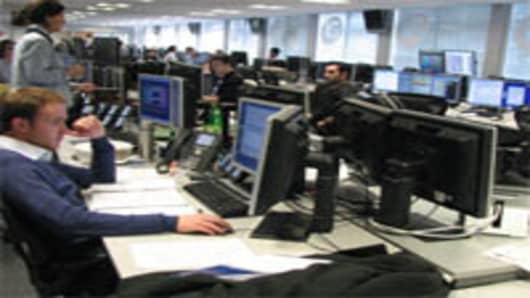It is too early to say whether companies' earnings point to a "real" recovery or to a short upwards cycle followed by a downwards one, he said. "Clearly we're having an inventory restocking."
Gold is a very good safe haven but, like any other asset classes, only when it's a contentious area, Hendry said.
"I made for my funds 50 percent investing in gold back in 2003" but gold is now a crowded trade, he added.
"It doesn't provide any kind of safe harbour for me right now so I'm not there," Hendry said.
Legacy of Debt
American companies' earnings are better than expected partially because of the weakness of the currency, according to Hendry.
"The dollar is incredibly cheap. I think sterling is incredibly cheap. Therefore, as an American company your costs are down."
But the belief, shared by some analysts, that we are witnessing the beginning of a bull market, is misplaced, Hendry said.
He evoked the consequences of the burden of debt on Germany after the First World War, when France and Britain wanted it to pay war damages, saying "that legacy of debt squashed the vitality of the German and European economy."
Today, the various stimulus packages have also left behind a legacy of debt.
"I think we're in a generation where returns disappoint until we deleverage the economy," Hendry said.
The rally in stocks may have adverse effects on the economy, because interest rates on American mortgages follow the 30-year Treasury and if investors sell it, the yields will go higher and may push rates on mortgages higher, according to Hendry.
China will continue to buy US Treasurys, as a way of ensuring their currency is stable, and the fact that the yuan is not freed from the dollar is creating strains on the European and Japanese economies, he said.
"The Chinese are not diversifying the reserves. They cannot diversify, because were they not buying Treasurys…if they weren't buying dollars, their currency would rise."
Watch more from Hendry's CNBC appearance here:
- China Doesn't Want a Free Yuan: Hendry
- Agriculture Has Disappointed: Hendry




